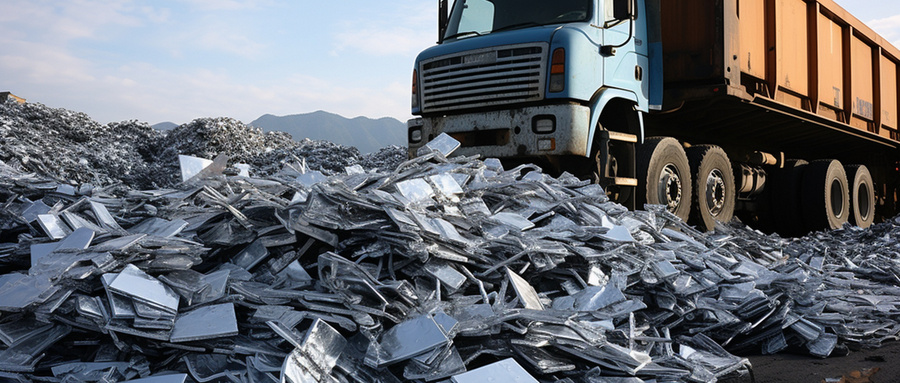-

A certain scrap material enterprise, which has been using self-issued vouchers for accounting for many years, has been ordered by the tax authorities to replace them with invoices and pay a substantia
Nov. 21, 2023, 6:57 p.m.5227Views
-

Tax-related Risk Analysis and Preventive Suggestions on Purchasing, Production and Sales of Electric Power Enterprises
Nov. 21, 2023, 2:07 p.m.5426Views
-
A number of enterprises in violation of tax savings by the audit, the Internet financial and tax pla
In last week's article, I made an inventory of the eight major triggers for the outbreak of tax-related risks on Internet tax platforms. However, the so-called "fuse" belongs to the "external causes", the real hidden tax-related risks, or the current five types of business models of the Internet taxation platform. As we know, the Internet tax platform relies on the network, the business scope for all parts of the country, the number of customers, if the business compliance is not in place, the risk of tax evasion and false opening is more likely to erupt. Therefore, this paper analyzes the five risky business models of Internet taxation platforms and puts forward corresponding response ideas for the benefit of readers.Nov. 21, 2023, 1:53 p.m.5142Views
-
Can interest expenses be truthfully deducted when a real estate company fails to obtain an invoice for a loan from a financial institution?
The initial cost of real estate project development is high, and a large amount of capital investment is required for pre-development. Many enterprises' own funds are difficult to meet the demand for engineering construction, and due to the strict approval of loans by financial institutions, in order to ensure that the project is carried out normally, the enterprises are forced to broaden the source of funds through other financing channels. However, according to the rules of the current tax law, when handling the land value-added tax settlement, the interest expenses incurred are subject to different deduction methods depending on the circumstances. Taxpayers should effectively grasp the scope and conditions of interest expense deduction to ensure maximum enjoyment of deduction.Nov. 21, 2023, 1:42 p.m.6144Views
-
"dual contract" equity transfer, the power company characterized tax evasion was punished, the person in charge of the crime of tax evasion
The electric power industry is the most important key energy industry in the development of the national economy, a basic industry related to the national economy and people's livelihood, and a priority development focus in the economic development strategies of countries around the world. The tax declaration involved in the process of equity transfer of electric power company is the focus of tax authorities in recent years. Tax bureaus around the world have issued documents one after another requesting that equity transfers be subject to tax verification. Failure to declare or concealment of income will be recognized as tax evasion and face fines or criminal penalties. When transferring equity in a power company, a reasonable transaction price and investment cost need to be determined, or else adjustments or challenges from tax authorities may arise. These will affect the actual earnings and cash flow of the power company. The author intends to analyze the tax-related issues that may be involved by combining actual cases and the characteristics of equity transfer in the power industry.Nov. 21, 2023, 10:40 a.m.5557Views
-
Tax Administrative Case Inventory and Big Data Observations in 2022
In 2022, China's tax policy "reduction" is the leading word, which provides strong support for reducing the burden of market players, revitalizing enterprise cash flow and boosting the speed of economic development. The new combination of tax support policies from multiple perspectives, all-round care of key industries and people: large-scale tax rebate policy to ease the pressure of the shortage of funds for real enterprises; transportation, science and technology, courier and other industries to reduce the burden of specific industries; the introduction of a new special deduction for personal tax and personal pension tax policy to care for the birth of a child, old age, and other key issues... ...In order to ensure that tax policies are put into practice, tax supervision in 2022 has been further strengthened with the help of multi-departmental collaboration and tax big data, rectifying the network entertainment industry, strengthening investment supervision, and cracking down on fraudulent tax credits and tax refunds, etc., which effectively deterred the unscrupulous elements. This article takes stock of the tax-related cases and data of the State Administration of Taxation and local tax authorities in 2022 to get a glimpse of the sources and causes of tax risks in 2022, so as to provide suggestions for enterprises to strengthen tax compliance in 2023.Nov. 21, 2023, 10:39 a.m.6805Views
-
Internet tax platform repeatedly issued tax-related cases, the risk of the outbreak of eight major triggers have to be prevented
The development of Internet technology has explored new development directions for traditional industries, but the hidden risks also come with it. Traditional tax consulting, planning and bookkeeping services have been able to transcend geographical restrictions and face a broader market in the context of the digital economy. On this basis, Internet tax platforms have emerged, which aim to reduce the tax burden of enterprises and individuals, but the corresponding means stray into the gray area of legal and illegal. With the cleanup of local tax policies in recent years, the activity space of Internet taxation platforms has been greatly compressed, and the corresponding tax-related risks are constantly high. By summarizing the reasons for the risk outbreak of Internet taxation platforms in recent years, this paper aims to point out the risks for the platforms in order to strengthen the work of self-examination and compliance.Nov. 21, 2023, 10:33 a.m.4958Views
-
Spotlight: Six highlights of China's tax reform in 2022
Tax issues are related to the immediate interests of taxpayers, and tax reform implies the redistribution and adjustment of interests. From the perspective of comprehensive data, this year's tax reform is reflected in a series of dividend policies through the gradual implementation of the principle of tax law, the promulgation of tax cuts and fee reductions to benefit enterprises and the public, further optimization of various taxes, and the collaborative development of various regions, etc. Through these policies, the burden of market entities has been reduced, and confidence in enterprise investment and development has been strengthened, and the dividends of the reform have injected new kinetic energy into the market entities and economic development.Nov. 21, 2023, 10:24 a.m.5024Views
-
2022 Tax Legislation Inventory and Tax Legislation Outlook of 2023
Taxation is related to the distribution of wealth and the livelihood of the nation, so the basic system of taxation is a matter of legislative reserve. For some time in the past, due to insufficient tax practice, the legislature authorized the State Council to formulate all kinds of temporary regulations on taxation in the form of enabling legislation. With the continuous improvement of China's legal system, strengthening the tax legislation has become the right thing to do. The Opinions on Further Deepening the Reform of Tax Collection and Administration issued by the General Office of the CPC Central Committee and the General Office of the State Council also explicitly require "the full implementation of the principle of tax legislation, and accelerate the promotion of the existing temporary regulations on taxation into law." This article takes stock of the various tax legislation activities in 2022 and looks forward to the tax legislation in 2023.Nov. 21, 2023, 10:06 a.m.5277Views
-
Real Estate Enterprises Land Increase Tax Clearance Cost Sharing Method Improperly Selected to Increase Tax Liability by Ten Million Dollars
When real estate development enterprises carry out land value-added tax (VAT) settlement, it is an important obligation of taxpayers to reasonably collect the relevant income, costs and expenses between different periods and projects as required, and it is also a key concern of the competent tax authorities in carrying out preliminary management and settlement audit. As there are differences in the amount of land value-added tax levied under different apportionment methods, and the land cost constitutes an important part of the base for enterprises to add deduction and development expenses, whether the correct cost apportionment method can be selected will have a significant impact on the tax burden of enterprises. However, as the land cost apportionment method for real estate development projects has not yet been unified at the national level, localities have autonomy in determining the apportionment method, and the decentralization and differentiation of tax policies in different regions have made it difficult for taxpayers to understand the relevant policies and carry out tax-related operations, which has led to many disputes between taxpayers and enterprises in determining the land cost apportionment method.Nov. 21, 2023, 10:06 a.m.6807Views





